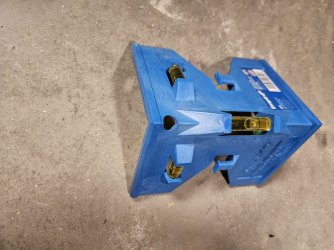So far i have been very happy with the gunwerks br2 "system" if you will for hunting. I usually try to get downwind and shoot pretty directly into the wind if it's more than 20 mph in western dakotas and Montana.
Now if I start utilizing the kestrel style system, I could get more on board with geovids paired or not. A slightly different "system". Maybe have both...
Being a pilot, I am trying to wrap my head around the kestrel. Not sure if I'm doing something wrong or if my unit is acting up. I calibrate compass and capture a live temp reading and lock it. Next do a direction of fire for 1 or multiple target azimuth. I'm not really confident that my unit is functioning properly. The direction reading seams to fluctuate so I have just mostly entered the direction manually as I know them at the 2 ranges I'm practicing at.
Then I try to capture a wind reading and it gives me a bearing reading rather than a heading which seems backwards to me. A northwest wind say facing 300 degrees kestrel reads 120 degrees. That seems backwards but whatever....but often it's actually returning some direction that is 20-30 degrees off. I can see being off 5-10 degrees, but I'm pointing down a fence line or road and I would think it should be much more consistent.
The guys Yesterday simply held unit up to wind and captured it, then just told unit that target was 4 o'clock from wind or captured direction of fire (right or wrong) and then said wind was at 4 o clock.
Bottom line is non of them took both direction of fire and wind heading and used both from kestrel.
I am trying to do both and apply a single wind input on multiple targets that varied 40 degrees of fire change and I'm struggling with it's outputs. It seems at times it's giving a wind that's 20-30 degrees off actual. Then when my direction of fire changes 40 degrees, it might be on for one target and off for the others. I need to go to the airport and confirm this reading down runways and taxiway to say for 100% sure.
Then last night I youtube several kestrel videos. Todd hodnett, litz, prs guys and looks like they all do it differently too.
So I'm reaching out to find out where to look for direction from the ground up on kestrel and say 1000yd plate competition "system"s. Separate from hunting mentality for now. Then I'll figure which system to go with and if/how I'll incorporate that into hunting or use hunting rigs in "competition" or keep completely separated.
And it just always is windy where I'm at. Whether it's Texas panhandle or western SD, I'm likely to be shooting 20+ mph winds as anything less. So I feel a little more speed or a little more bc will outweigh a little more recoil in .20-7mm cartidges. Primarily interested in .22-6mm benchrest at the moment.

